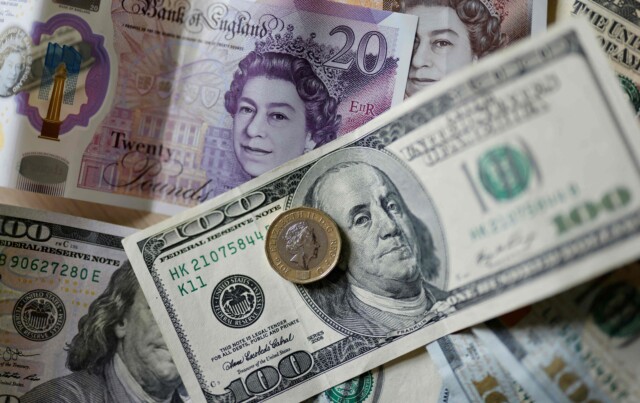
THE pound has fallen to its lowest level against the dollar since decimalisation in 1971.
Sterling fell by more than 4% to just $1.03 in early Asia trade before.
The pound fell to its lowest levels since 1971.
Sterling gained some ground to about $1.05 early on Monday.
The drop was fuelled by growing fears around recession hitting the UK economy.
The Bank of England (BoE) has warned that another rise to interest rates is likely on its way in a bid to tackle soaring inflation.
It comes as the Chancellor announced in his Mini Budget last week:
- Beer price rise cancelled
- National Insurance rise scrapped saving hundreds a year
- Income tax cut from next April saving average £170 a year
- Stamp duty cut for home movers and first-time buyers
- Boost for self employed as complex tax rules axed
- Low-tax investment zones for business
- Corporation tax hike scrapped
- Bankers bonus ditched
It’s a blow for anyone buying holiday cash now as you’ll get fewer dollars for each pound you exchange.
The weak pound is also hitting drivers in the pocket, despite petrol prices falling.
Petrol prices fell below 166p a litre for the first time since May on Wednesday.
But the weak pound is adding almost a fiver more to each tank of fuel when filling up at the pumps, according to the AA.
It also comes after the Bank of England confirmed that the UK economy will officially enter recession by the end of the month.
Britain’s central bank has raised interest rates by 0.5 per cent to 2.25 per cent from 1.75 per cent, the highest level since late 2008 last week.
The Bank of England now expects inflation to peak at 11 per cent this October, compared to its earlier forecast of 13.3 per cent in August.
This would would mark the highest inflation the UK has witnessed since January 1982.
The central bank has already hiked the base rate six times this year.
The move will make the cost of borrowing, including loans, credit cards and mortgage repayments more expensive.
And it means more misery for households who are already grappling with a cost of living crisis.
What a weaker pound means for your finances
A fall in the value of sterling is bad news for holidaymakers, who will find they get less travel money at the Foreign Exchange.
If the value of the pound versus the dollar is $1.05/£1 then for every £100 you change up, you get £105 dollars.
If the pound to dollar exchange rate drops to $1.1/£1 then you’ll only get $110 for £100 holiday spending money.
That means buying anything abroad seems more expensive, and can impact on what you can afford to do on your holiday.
There are some steps you can take to make your travel money go further.
Ordering your cash online in advance will help avoid a last-minute rush at the airport, where the exchange rates are typically much worse.
TravelMoneyMax at moneysavingexpert.com can help you compare rates from different bureaux de change.
Overseas spending cards mean you don’t have to worry about carrying wads of cash too.
These are specific debit and credit cards designed for using abroad, which won’t charge you for each transaction like a standard card will.
But be careful when flashing the plastic as it can make it easier to overspend and ignore your budget.
A weaker pound can also have an impact on the value of your pension or any investments you might have.
This is because if you hold shares in a company based overseas, their value is affected by currency movements.
If you notice a dip in the value of your investments, it’s best not to panic or be tempted to sell.
Negative growth often brings with it falling incomes, job cuts and lower consumption.
A country is in recession when its economy shrinks over a sustained period of time, rather than growing normally.







